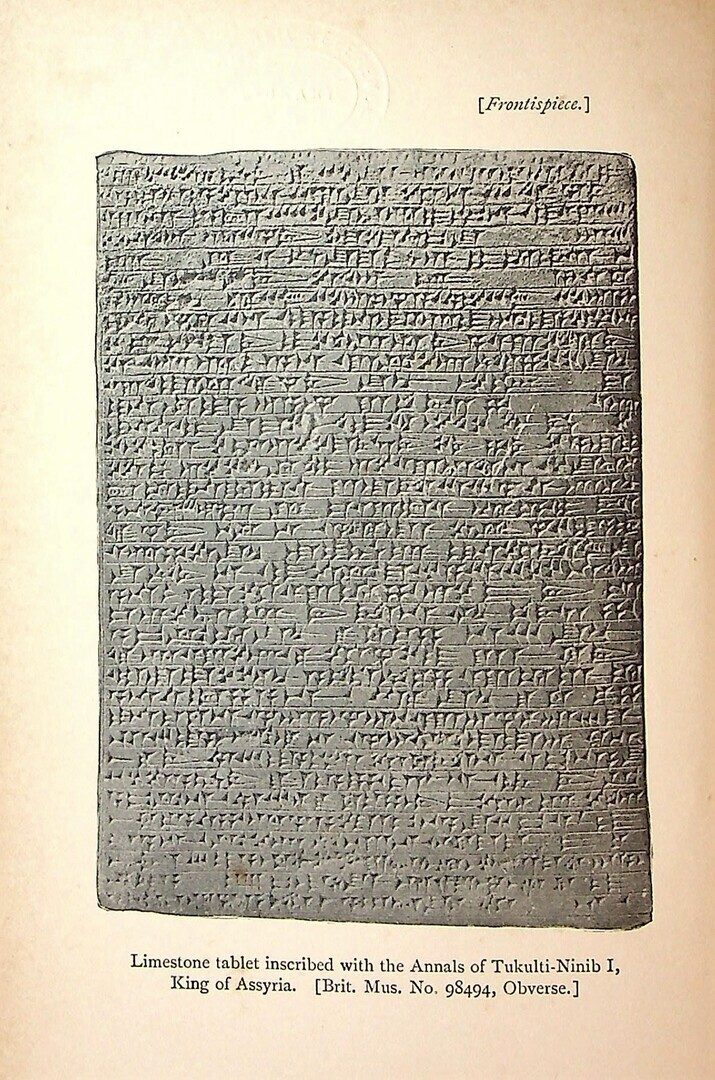Studies in Eastern History. THREE VOLUMES.
King, Leonard William.
Synopsis
Leonard William King (1869 – 1919) was an English archaeologist and Assyriologist educated at Rugby School and King’s College in Cambridge. He collected stone inscriptions widely in the Near East, taught Assyrian and Babylonian archaeology at King’s College for a number of years, and published a large number of works on these subjects. He is also known for his translations of ancient works such as the Code of Hammurabi. He became the Assistant to the Keeper of Egyptian and Assyrian Antiquities at the British Museum.
In the preface to this work, Leonard King states that the text it presents ‘is of great historical value, in as much as it supplements our knowledge of the history of Assyria and her relations with Babylonia during the early part of the thirteenth century BC’. The tablet containing the text was buried under the wall of a city founded by King Tukulti-Ninib I (transliterated as Tukulti-Ninurta by modern scholars), to commemorate its building and his previous military achievements, which included the invasion of Babylonia. This account confirms earlier documents, and gives more detail on the chronology of a crucial period in the ancient history of the Near East. The book offers a lengthy introduction on the tablet and on the tradition of such foundation documents, as well as the cuneiform text and a parallel translation, along with an appendix of related documents.








